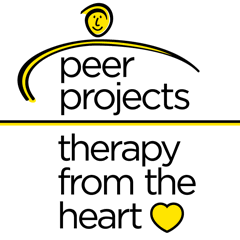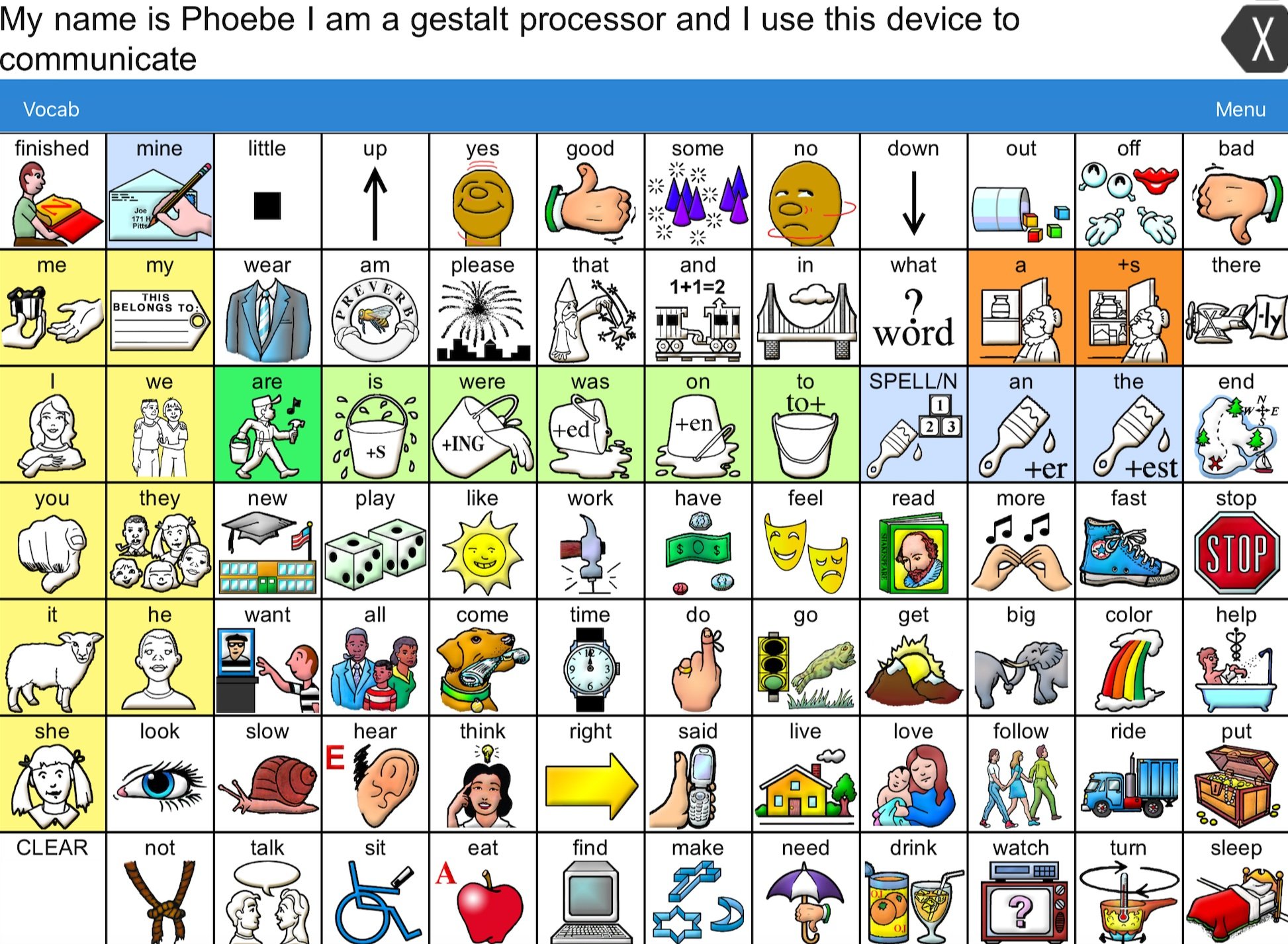Augmentative & Alernative Communication (AAC)
-
Alternative and Augmentative Communication (AAC) means all the ways an individual communicates using a different modality than verbal speech. At Peer Projects, we prioritize the value of communication for all style learners. It is crucial that all children with communication differences be provided with individualized care that supports their learning styles in an environment that affirms and progresses their language. We specialize in working with and supporting learners who use a variety of AAC modalities such as high tech speech generating devices, as well as low tech AAC such as sign language and gesturing. If your learner is new to AAC or a current AAC user, we will ensure to support them in an affirming manner that keeps their needs at the center. We know that beginning the use of an AAC device can be daunting. We strive to support learners and their families through every step, from device selection to programming to on-going learning, and meet you where you are at in order to excitedly and effectively integrate AAC into your learners and family life.
Aided language stimulation, modeling without demands, is our primary tool to support learners who use AAC. As our clinic follows neurodiversity affirming practices, we find immense value in your learner taking ownership of their communication modality and being provided with models that naturally grow their intrinsic curiosity and motivation. Acquiring language in a natural environment allows your learner to feel competent and acquire language in a manner that feels comfortable to them without demands or prompt dependence.
-
Our clinic has a multitude of Natural Language Acquisition (NLA) trained clinicians that prioritize working with gestalt learners. In case you are unfamiliar with gestalt language processing (GLP), it is a different way of natural language development beginning from echolalia to self-generated grammar. Most of us think about language acquisition how we likely learned it! First we started by saying single words such as “mama” or “go”. Then we began adding our single words together such as “mama go” before learning how to make a sentence like “mama go faster.” The final stage was learning how to integrate all of what we learned into conversations and stories. Our gestalt processors learn the opposite and this is based on the work from Barry Prizant (1983) so it’s not a new development, people are just starting to recognize that there are two ways to naturally develop language! Just so you know, gestalt processors are not limited to autistic learners but 85% of autistic individuals do acquire language through natural language acquisition.
The first stage of NLA is echolalia meaning they process early language in whole chunks (or gestalts) opposed to single words. For example, saying “you can’t catch me” when a child is running rather than ‘go!” With the support of the NLA principles, a GLP can learn how to mix and match their chunks to begin to form authentic self generated speech! Learners who are minimally speaking or non-speaking who use AAC can also be a gestalt processor. Even if we do not verbally hear echolalia, there are other ways to tell if this is how your learner is developing language! This can include a joy for music (MOST GLP’s are very musical), sing songs but do not have any words, minimal single words or unintelligible speech labeled as “jargon” (this probably isn’t jargon but lots of unintelligible gestalts strung together), rich in intonation when they do use their voice, and the learner studies and replays media clips and uses these to communicate. For example, if a learner finds a part of a song to express what they mean such as “there is a monster in my tummy when it grumbles' ' to mean they are hungry. GLP’s are very creative so it is our job as clinicians and caregivers to be a detective! Lastly, if your child is using AAC but they are not making progress despite intensive intervention. It is likely they are being treated as an analytic language processor (words-phrases-sentences) and not as a gestalt processor! At Peer Projects we are passionate about supporting GLP’s who are AAC users, and strongly consider feature matching the correct device to your child and various programming considerations to support natural language acquisition.
-
Monday, February 17th from 6.30pm - 7.30 pm EST
At Peer Projects, we strongly value caregiver support an desire to connect parents through a neurodiversity affirming lens, creating a safe space to join and share.
We welcome families of part time and full time AAC users, within and outside of our Peer Projects community.
RSVP to phoebe@pptfth.com and a zoom link will be provided.
This group is led by Phoebe Beard MS CCC-SLP and Sarah Birdsall MS CCC -SLP
Several of our clinicians are NLA Trained and consider this methodology as we support AAC users as well!
If you have any questions about our clinic’s support of AAC users, please feel free to reach out to our own AAC enthusiast, Phoebe Beard MS, CCC-SLP at phoebe@pptfth.com.






